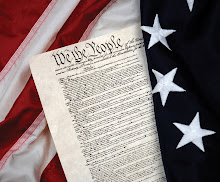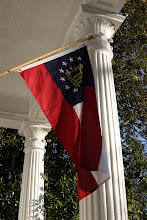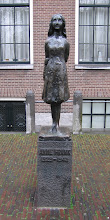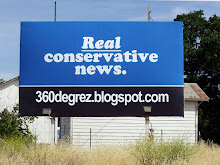 WESTPORT, Conn. (AP) Paul Newman, the Academy-Award winning superstar who personified cool as the anti-hero of such films as "Hud," ''Cool Hand Luke" and "The Color of Money" — and as an activist, race car driver and popcorn impresario — has died. He was 83.
WESTPORT, Conn. (AP) Paul Newman, the Academy-Award winning superstar who personified cool as the anti-hero of such films as "Hud," ''Cool Hand Luke" and "The Color of Money" — and as an activist, race car driver and popcorn impresario — has died. He was 83.
Newman died Friday after a long battle with cancer at his farmhouse near Westport, publicist Jeff Sanderson said. He was surrounded by his family and close friends.
In May, Newman had dropped plans to direct a fall production of "Of Mice and Men," citing unspecified health issues.
He got his start in theater and on television during the 1950s, and went on to become one of the world's most enduring and popular film stars, a legend held in awe by his peers. He was nominated for Oscars 10 times, winning one regular award and two honorary ones, and had major roles in more than 50 motion pictures, including "Exodus," ''Butch Cassidy and the Sundance Kid," ''The Verdict," ''The Sting" and "Absence of Malice."
Newman worked with some of the greatest directors of the past half century, from Alfred Hitchcock and John Huston to Robert Altman, Martin Scorsese and the Coen brothers. His co-stars included Elizabeth Taylor, Lauren Bacall, Tom Cruise, Tom Hanks and, most famously, Robert Redford, his sidekick in "Butch Cassidy" and "The Sting."
He sometimes teamed with his wife and fellow Oscar winner, Joanne Woodward, with whom he had one of Hollywood's rare long-term marriages. "I have steak at home, why go out for hamburger?" Newman told Playboy magazine when asked if he was tempted to stray. They wed in 1958, around the same time they both appeared in "The Long Hot Summer," and Newman directed her in several films, including "Rachel, Rachel" and "The Glass Menagerie."
With his strong, classically handsome face and piercing blue eyes, Newman was a heartthrob just as likely to play against his looks, becoming a favorite with critics for his convincing portrayals of rebels, tough guys and losers. "I was always a character actor," he once said. "I just looked like Little Red Riding Hood."
Newman had a soft spot for underdogs in real life, giving tens of millions to charities through his food company and setting up camps for severely ill children. Passionately opposed to the Vietnam War, and in favor of civil rights, he was so famously liberal that he ended up on President Nixon's "enemies list," one of the actor's proudest achievements, he liked to say.
A screen legend by his mid-40s, he waited a long time for his first competitive Oscar, winning in 1987 for "The Color of Money," a reprise of the role of pool shark "Fast" Eddie Felson, whom Newman portrayed in the 1961 film "The Hustler."
Newman delivered a magnetic performance in "The Hustler," playing a smooth-talking, whiskey-chugging pool shark who takes on Minnesota Fats — played by Jackie Gleason — and becomes entangled with a gambler played by George C. Scott. In the sequel — directed by Scorsese — "Fast Eddie" is no longer the high-stakes hustler he once was, but rather an aging liquor salesman who takes a young pool player (Cruise) under his wing before making a comeback.
He won an honorary Oscar in 1986 "in recognition of his many and memorable compelling screen performances and for his personal integrity and dedication to his craft." In 1994, he won a third Oscar, the Jean Hersholt Humanitarian Award, for his charitable work.
His most recent academy nod was a supporting actor nomination for the 2002 film "Road to Perdition." One of Newman's nominations was as a producer; the other nine were in acting categories. (Jack Nicholson holds the record among actors for Oscar nominations, with 12; actress Meryl Streep has had 14.)
As he passed his 80th birthday, he remained in demand, winning an Emmy and a Golden Globe for the 2005 HBO drama "Empire Falls" and providing the voice of a crusty 1951 car in the 2006 Disney-Pixar hit, "Cars."
But in May 2007, he told ABC's "Good Morning America" he had given up acting, though he intended to remain active in charity projects. "I'm not able to work anymore as an actor at the level I would want to," he said. "You start to lose your memory, your confidence, your invention. So that's pretty much a closed book for me."
He received his first Oscar nomination for playing a bitter, alcoholic former star athlete in the 1958 film "Cat on a Hot Tin Roof." Elizabeth Taylor played his unhappy wife and Burl Ives his wealthy, domineering father in Tennessee Williams' harrowing drama, which was given an upbeat ending for the screen.
In "Cool Hand Luke," he was nominated for his gritty role as a rebellious inmate in a brutal Southern prison. The movie was one of the biggest hits of 1967 and included a tagline, delivered one time by Newman and one time by prison warden Strother Martin, that helped define the generation gap, "What we've got here is (a) failure to communicate."
Newman's hair was graying, but he was as gourgeous as ever and on the verge of his greatest popular success. In 1969, Newman teamed with Redford for "Butch Cassidy and the Sundance Kid," a comic Western about two outlaws running out of time. Newman paired with Redford again in 1973 in "The Sting," a comedy about two Depression-era con men. Both were multiple Oscar winners and huge hits, irreverent, unforgettable pairings of two of the best-looking actors of their time.
Newman also turned to producing and directing. In 1968, he directed "Rachel, Rachel," a film about a lonely spinster's rebirth. The movie received four Oscar nominations, including Newman, for producer of a best motion picture, and Woodward, for best actress. The film earned Newman the best director award from the New York Film Critics.
In the 1970s, Newman, admittedly bored with acting, became fascinated with auto racing, a sport he studied when he starred in the 1972 film, "Winning." After turning professional in 1977, Newman and his driving team made strong showings in several major races, including fifth place in Daytona in 1977 and second place in the Le Mans in 1979.
"Racing is the best way I know to get away from all the rubbish of Hollywood," he told People magazine in 1979.
Despite his love of race cars, Newman continued to make movies and continued to pile up Oscar nominations, his looks remarkably intact, his acting becoming more subtle, nothing like the mannered method performances of his early years, when he was sometimes dismissed as a Brando imitator. "It takes a long time for an actor to develop the assurance that the trim, silver-haired Paul Newman has acquired," Pauline Kael wrote of him in the early 1980s.
In 1982, he got his Oscar fifth nomination for his portrayal of an honest businessman persecuted by an irresponsible reporter in "Absence of Malice." The following year, he got his sixth for playing a down-and-out alcoholic attorney in "The Verdict."
In 1995, he was nominated for his slyest, most understated work yet, the town curmudgeon and deadbeat in "Nobody's Fool." New York Times critic Caryn James found his acting "without cheap sentiment and self-pity," and observed, "It says everything about Mr. Newman's performance, the single best of this year and among the finest he has ever given, that you never stop to wonder how a guy as good-looking as Paul Newman ended up this way."
Newman, who shunned Hollywood life, was reluctant to give interviews and usually refused to sign autographs because he found the majesty of the act offensive, according to one friend.
He also claimed that he never read reviews of his movies.
"If they're good you get a fat head and if they're bad you're depressed for three weeks," he said.
Off the screen, Newman had a taste for beer and was known for his practical jokes. He once had a Porsche installed in Redford's hallway — crushed and covered with ribbons.
"I think that my sense of humor is the only thing that keeps me sane," he told Newsweek magazine in a 1994 interview.
In 1982, Newman and his Westport neighbor, writer A.E. Hotchner, started a company to market Newman's original oil-and-vinegar dressing. Newman's Own, which began as a joke, grew into a multimillion-dollar business selling popcorn, salad dressing, spaghetti sauce and other foods. All of the company's profits are donated to charities. By 2007, the company had donated more than $175 million, according to its Web site.
Hotchner said Newman should have "everybody's admiration."
"For me it's the loss of an adventurous freindship over the past 50 years and it's the loss of a great American citizen," Hotchner told The Associated Press.
In 1988, Newman founded a camp in northeastern Connecticut for children with cancer and other life-threatening diseases. He went on to establish similar camps in several other states and in Europe.
He and Woodward bought an 18th century farmhouse in Westport, where they raised their three daughters, Elinor "Nell," Melissa and Clea.
Newman had two daughters, Susan and Stephanie, and a son, Scott, from a previous marriage to Jacqueline Witte.
Scott died in 1978 of an accidental overdose of alcohol and Valium. After his only son's death, Newman established the Scott Newman Foundation to finance the production of anti-drug films for children.
Newman was born in Cleveland, Ohio, the second of two boys of Arthur S. Newman, a partner in a sporting goods store, and Theresa Fetzer Newman.
He was raised in the affluent suburb of Shaker Heights, where he was encouraged him to pursue his interest in the arts by his mother and his uncle Joseph Newman, a well-known Ohio poet and journalist.
Following World War II service in the Navy, he enrolled at Kenyon College in Gambier, Ohio, where he got a degree in English and was active in student productions.
He later studied at Yale University's School of Drama, then headed to New York to work in theater and television, his classmates at the famed Actor's Studio including Brando, James Dean and Karl Malden. His breakthrough was enabled by tragedy: Dean, scheduled to star as the disfigured boxer in a television adaptation of Ernest Hemingway's "The Battler," died in a car crash in 1955. His role was taken by Newman, then a little-known performer.
Newman started in movies the year before, in "The Silver Chalice," a costume film he so despised that he took out an ad in Variety to apologize. By 1958, he had won the best actor award at the Cannes Film Festival for the shiftless Ben Quick in "The Long Hot Summer."
In December 1994, about a month before his 70th birthday, he told Newsweek magazine he had changed little with age.
"I'm not mellower, I'm not less angry, I'm not less self-critical, I'm not less tenacious," he said. "Maybe the best part is that your liver can't handle those beers at noon anymore," he said.
Newman is survived by his wife, five children, two grandsons and his older brother Arthur.
On the Net:
http://www.newmansown.com
 U.S. consumers who can’t find gas to put in their vehicles are still feeling the effects of this season’s hurricanes.
U.S. consumers who can’t find gas to put in their vehicles are still feeling the effects of this season’s hurricanes. 



































